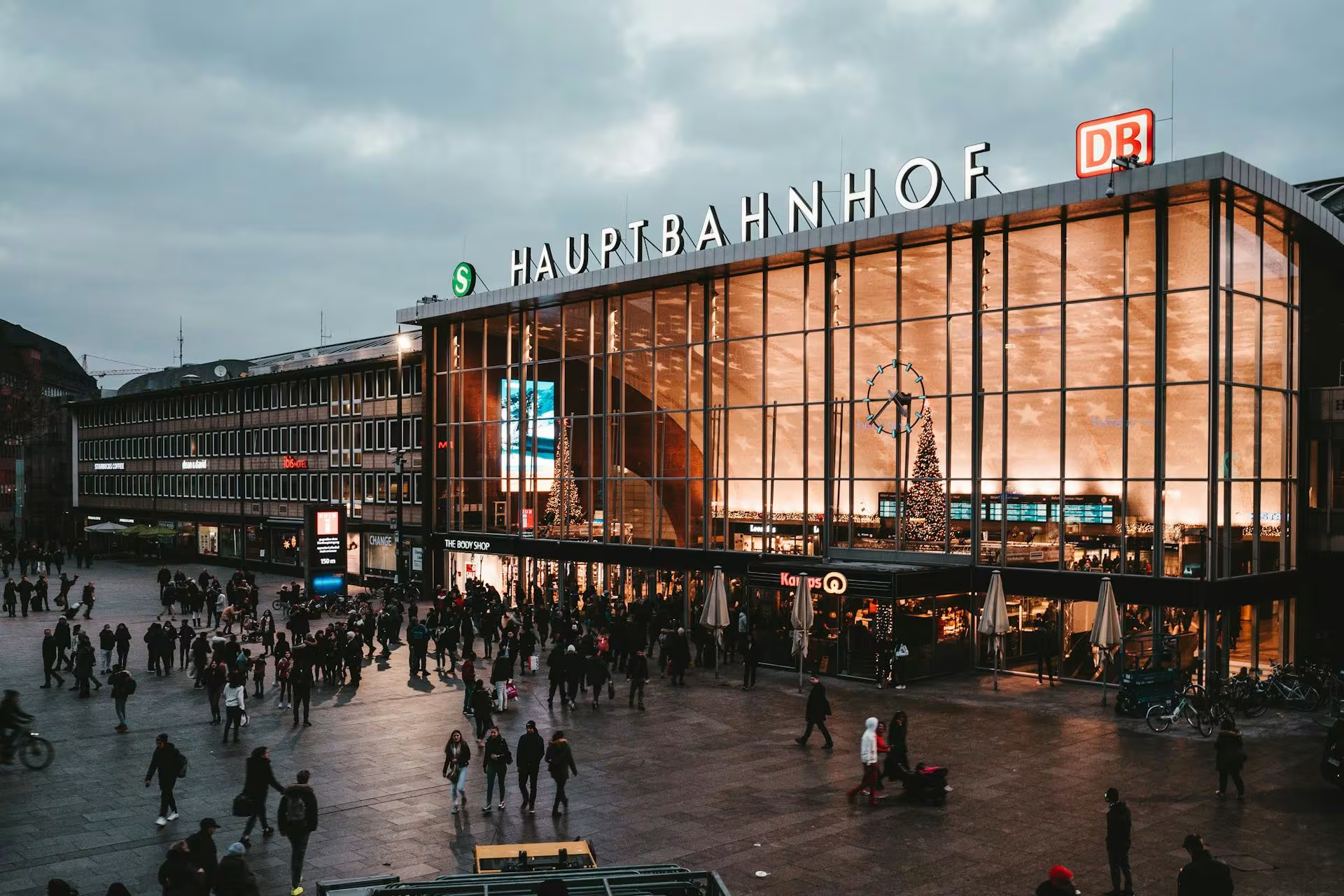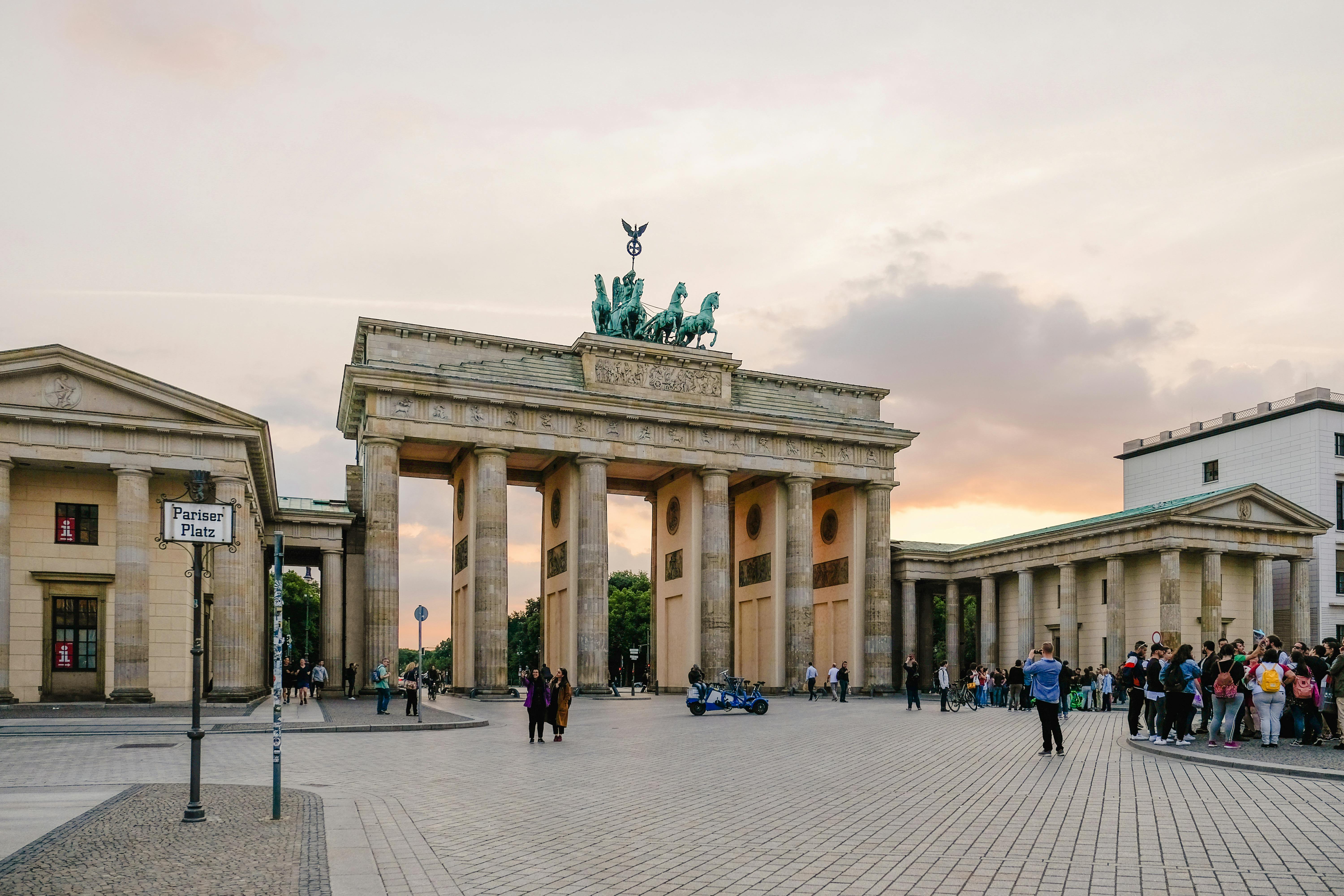
Moving to Germany is an exciting journey, whether you’re coming to study, work, or reunite with family. But alongside the excitement comes the practical side of things – and one of the most important requirements is securing a residence permit. This document legally allows you to live in Germany beyond the initial visa period and is essential for anyone planning to stay beyond 3 months.
What is a German Residence Permit?
A German residence permit is an official document that allows non-EU/EEA citizens to live in Germany for a specific purpose and duration. It is different from a visa and is usually applied for once you are already in Germany. Depending on your situation, a residence permit can be temporary, permanent, or linked to specific work or study purposes.
Purpose Of a Residence Permit
The main purpose of a residence permit is to give you legal permission to live in Germany beyond a short-term stay. It ensures that your stay is aligned with your reason for being in the country, whether that's:
- Studying at a German university
- Taking up employment or self-employment
- Joining a family member
- Seeking protection as a refugee or asylum seeker
In practice, this means the residence permit defines why you are in Germany, how long you can stay, and what rights you have. For example, a student permit allows you to attend university and work a limited number of days, while a work permit allows full-time employment with a specific employer.
Difference Between a Visa and a Residence Permit
Many people confuse visas with residence permits, but they serve different functions in Germany's immigration system. A visa usually allows you to enter Germany for a short time, such as tourism or the initial entry for study or work.
A residence permit, on the other hand, is issued once you are in Germany and allows you to live in the country long-term. In short:
- Visa: An entry document, usually obtained before travelling and valid for a short period
- Residence permit: Gives you permission to stay and live in Germany after arrival to fulfil your purpose of being in the country
Think of a visa as your entry ticket, whilst a residence permit is your membership card for longer-term participation in German life.
Who Needs a Residence Permit in Germany?
Internationals from countries that do not belong to the EU/EEA or aren't from Switzerland and want to live in Germany for longer than 90 days need to apply for a residence permit after arrival. If your purpose of living in Germany is one of the following, you will need a residence permit once in Germany:
- Students pursuing degrees at German universities
- Skilled workers with job offers from German employers
- Skilled workers moving to look for a job in Germany
- Family members joining relatives already living in Germany
- Researchers and academics
- Entrepreneurs starting businesses in Germany
- Refugees and asylum seekers with approved status
Citizens of EU/EEA member states and Switzerland don't need a residence permit due to freedom of movement agreements.
Types of German Residence Permits

Germany offers several residence permit categories; each designed for specific circumstances and goals. Understanding these options helps you select the most appropriate one for your situation.
Temporary Residence Permit in Germany
The temporary residence permit (Aufenthaltserlaubnis) is the most common type. It is issued for a limited period, often maximum 4 years, and tied to a specific purpose such as study, employment, job seeking, research, or family reunion.
The key characteristics of a temporary residence permit include:
- Renewable if you continue to meet the requirements (for example, being enrolled as a student, having a valid work contract, or maintaining financial proof)
- Purpose-specific restrictions as you can usually only engage in activities your permit explicitly allows and if your situation changes – for example, you switch from being a student to an employee – you will need to apply for a new type of permit
- Potential pathway to receiving permanent residence after meeting the necessary conditions
- Varying validity periods based on your circumstances, for examples student residence permit is usually issued for a maximum of 2 years, but can be issued for shorter if your studies take less time
Permanent Residence Permit in Germany
The permanent residence permit (Niederlassungserlaubnis) allows internationals to live and work in Germany indefinitely. Unlike the temporary residence permit, it is not tied to a specific purpose such as studying or employment. This means it gives you freedom to work in any job, start a business or even go back to university without needing to inform the Immigration Authority.
It also has no expiration date and removes the need to keep applying for extensions. An additional benefit of the permanent residence permit is that it simplifies the process of bringing close family members to join you in Germany with easier family reunification procedures.
To qualify for permanent residence, you generally need to meet several conditions, which often include:
- Living in Germany for at least 5 years with a valid residence permit (this period can be shorter in some cases, for example, if you hold an EU Blue Card).
- Proving financial stability through regular income or employment.
- Contributing to the statutory pension insurance scheme for a certain period (usually 24-36 months).
- German language skills at B1 level or higher
- Basic knowledge of the German legal and social system demonstrated by passing the "Living in Germany" test
- Sufficient living space for yourself and any family members.
However, it's important to note that permanent residency can be lost if you leave Germany for long periods (generally 6 months or more) without prior arrangements. So, while it grants security and stability, it is still linked to maintaining Germany as your main place of residence.
The permanent residence permit also serves as an important stepping stone towards German citizenship, as years spent under permanent residency can count towards naturalisation requirements.
EU Blue Card in Germany
The EU Blue Card is a special type of residence permit designed for highly qualified non-EU/EEA citizens who want to work in Germany. It was created to attract skilled professionals to Europe and offers a faster, more secure route to long-term residency compared to a standard work permit.
The advantages of the EU Blue Card include:
- Shorter waiting period for permanent residency (as little as 21 months with German proficiency)
- Ability to bring your spouse immediately and they can in Germany without restrictions
- Greater job mobility within the EU
To qualify, you'll need a recognised university degree, and a job offermeeting minimum salary requirements (€48,300 annually in 2025, or €43,759.80 for shortage occupations).
For many internationals, the EU Blue Card is not only a way to pursue a career in Germany but also a direct path towards long-term settlement. It's especially popular among IT professionals, engineers, doctors, and other in-demand specialists who want both professional opportunities and a secure future in Germany.
How to Apply for a German Residence Permit
Applying for a residence permit is a structured process but can feel overwhelming at first. The good news is that once you understand the steps, it becomes more manageable.
Where to Apply in Germany
When in Germany, you will need to apply for a residence permit at your local Ausländerbehörde (Foreigners' Office/Immigration Authority). The office is usually located in the city or district where you live. Keep in mind that you generally cannot choose a different office from the one in your city. Appointments can sometimes take weeks to secure, especially in major cities, so it's best to book early.
Step-by-Step Residence Permit Application Process
Applying for a residence permit in Germany can feel overwhelming at first but breaking it down into clear steps makes the process much easier to follow. Below is a general guide to what you can expect:
- Register your address (Anmeldung): Before you can apply for a residence permit, you must register your new address at the local Bürgeramt (citizen's office). This process is called Anmeldung. You'll receive a registration certificate (Meldebescheinigung), which is a key document for your residence permit application.
- Gather all required documents: Collect the necessary paperwork, which usually includes your passport, biometric photos, proof of accommodation, financial proof, health insurance, and your application form. Having everything ready in advance helps avoid delays.
- Book an appointment with the Ausländerbehörde: In many cities, appointments at the Foreigners' Office can be booked online via the website. In larger cities, waiting times can be several weeks, so it's wise to book as early as possible.
- Attend your appointment: During the appointment, you'll submit your documents, answer questions about your purpose of stay, and provide biometric data such as fingerprints and a photo. The case officer may also request additional documents if needed.
- Pay the application fee: Fees vary depending on the type of permit. For most temporary residence permits, the cost is between €75 and €100, while permanent residency or an EU Blue Card typically costs more.
- Wait for processing: The Foreigners' Office will review your application. Processing can take anywhere from 4 to 10 weeks, depending on the complexity of your case and the workload of your local office.
- Collect your residence permit card: Once approved, you'll be notified to collect your electronic residence permit card (eAT). This card contains your photo, fingerprints, and key details about your residence status.
Processing Time for a Residence Permit
Processing times vary depending on factors such as the type of permit you are applying for, your location – major cities often have longer waiting times – and your specific case. On average, you can expect a processing time of 4 to 10 weeks from the day you submit your application.
Keep in mind that there can also be an appointment backlog, especially in major cities, where the wait to get an appointment takes weeks or even months. Booking an appointment early is essential.
Tip: If your current visa or residence title is about to expire while your application is still being processed, the Foreigners' Office can issue a Fiktionsbescheinigung (fictional certificate). This document confirms that you are legally allowed to stay in Germany until your new permit has been processed.
Required Documents for a German Residence Permit
When applying for a residence permit in Germany, one of the most important steps is preparing the correct documents. Submitting a complete and accurate application will save you time, reduce stress, and help avoid delays at the Ausländerbehörde.
While exact requirements depend on the type of permit you are applying for (student, work, family, etc.), there are several documents that almost everyone will need to provide. Think of these as the "core" documents, to which more maybe required depending on the specific permit.
Application Form and Accommodation Proof
Every application begins with the official application form, available in German and sometimes English from your local Foreigners' Authority website. It is important that you complete all sections thoroughly and accurately. Mistakes or missing sections can lead to delays.
Two of the first requirements for a German residence permit are the application form and evidence of your accommodation in Germany. These documents confirm both your official request for the permit and your living arrangements during your stay.
- Application form: This is the official document you must complete to formally apply for your residence permit. It is usually available on the website of your local Foreigners' Office and must be filled in carefully with accurate personal details, purpose of stay, and passport information. Mistakes or missing sections can lead to delays.
- Valid passport and biometric photos: Along with the application, you must bring your passport and biometric passport photos that meet the German format (size, background colour, and facial positioning). These are needed for your electronic residence permit card (eAT).
- Proof of accommodation: German authorities need proof that you have suitable housing. This is usually shown through a rental contract (Mietvertrag) and the official landlord confirmation form (Wohnungsgeberbestätigung). The latter is a legal requirement in Germany whenever you move into a new place and is also necessary for registering your address.
- Registration certificate (Meldebescheinigung): After registering your address at the local Bürgeramt, you'll receive a Meldebescheinigung. This document is essential for your residence permit application as it confirms your official place of residence in Germany.
Financial Proof and Health Insurance
German authorities require evidence that you can support yourself financially without relying on public assistance. The required amount often depends on the permit type but typically ranges from €992 to €1,091. Accepted methods of showing financial stability include:
- A Blocked Account (Sperrkonto), most common for students and Opportunity Card applicants.
- An employment contract and/or recent pay slips.
- A Declaration of Commitment (Verpflichtungserklärung) from a sponsor in Germany
- A scholarship for students.
Health insurance is compulsory in Germany, and you must show proof of valid coverage before receiving your residence permit. The type of insurance you need depends on your situation:
- Public health insurance, often for students under 30 years and most employees
- Private health insurance, typically for students over 30 years, job seekers, and young high earning employees
Make sure you take out your insurance with a German company as this ensures that the coverage meet the required standards. Additionally, keep in mind that travel health insurance is not accepted for long-term stays.
Additional Required Documents
Depending on the residence permit you are applying for, you will be required to provide addition documents:
- Students: University enrolment certificate.
- Employees: Signed work contract, job description, and sometimes recognition of your qualifications.
- Job seekers: University degree and often recognition of your qualifications.
- Family reunion: Marriage certificate, birth certificates of children, or proof of family ties.
- Self-employed: Business plan, proof of financing, and evidence of customer demand.
Tip: Always bring both originals and copies of your documents. Many offices will keep copies for their records and having them ready prevents unnecessary delays.
Extending Your German Residence Permit
Residence permits are not issued indefinitely (unless permanent) and it is very likely that you will need to renew yours if you plan to stay longer. Whether you are a student continuing your studies or an employee on a renewed or unlimited contract, it's important to plan ahead to avoid gaps in your legal status.
When to Start the Extension Process
You should begin the extension process at least 12 weeks before your current residence permit expires. In many cities, especially larger ones like Berlin or Frankfurt, appointments at the Ausländerbehörde can be booked out months in advance. Starting early ensures you secure a slot and reduces stress as your expiry date approaches.
If you cannot get an appointment before your permit expires, most offices issue a Fiktionsbescheinigung (temporary certificate) once you have applied. This document proves that you are legally allowed to stay in Germany until a decision is made on your extension.
Documents Needed for a Residence Permit Extension
In most cases, you will need the exact same documents for the extension as for the initial residence permit applications. The core documents include:
- Pasaporte en vigor
- Completed application form
- Biometric passport photos (in the German format)
- Current residence permit card
- Proof of accommodation (rental contract and landlord confirmation form)
- City registration certificate (Meldebescheinigung)
- Proof of financial means
- Confirmation of German health insurance coverage
Depending on your purpose of stay, you will also need to provide additional documentation such as:
- University enrolment certificate (Immatrikulationsbescheiningung) and your academic transcripts for students.
- Employment contract and recent payslips for employees.
- Proof of continued family ties for those on a family reunion
Consequences of Not Extending on Time
Failing to renew your residence permit before it expires has serious consequences:
- You may lose your legal right to stay in Germany.
- Overstaying can result in fines or difficulties with future applications.
- Travelling outside Germany becomes risky as you will not be allowed to re-enter without valid documentation.
- Gaps in your residence history may affect future applications for permanent residency or citizenship.
Tip: Always keep an eye on the expiry date of your residence permit. Mark it in your calendar several months in advance so you have plenty of time to gather documents, secure an appointment, and apply.
Student Residence Permit in Germany

International students represent one of Germany's largest groups of residence permit holders. If you come to Germany on a student visa, you will need to switch to a student residence permit after arrival.
This permit allows you to live and study legally in Germany for the duration of your studies. It also comes with certain rights and responsibilities that are important to understand before and during your stay.
Application Process for Student Residence Permit
Once you arrive in Germany, your student visa is usually valid only for the first few months. To continue your studies, you must apply for a student residence permit at the Ausländerbehörde (Foreigners' Office) in the city you live in.
You should make the application as soon as possible after registering your address (Anmeldung). In busy cities, appointments may take weeks or even months, so booking early is strongly recommended.
Besides the core documents mentioned above, you will also need:
- Certificate of enrolment from your German university (Immatrikulationsbescheinigung)
- Current student visa and entry stamp on your passport
One of the most important requirements is proving you have sufficient funds to support yourself during your studies. Many students do this through a Blocked Account, which is the most widely accepted method by German authorities.
Tip: With Fintiba Plus, you can easily meet your student residence permit requirements online by getting an all-in-one package that includes:
- ✅A digital Blocked Account accepted by all German authorities worldwide
- ✅Long-term German health insurance (public or private)
- ✅Free travel health insurance for the student visa application
By using Fintiba Plus, you can avoid delays caused by missing or incomplete documents and focus on settling into your new student life.
Work Limitations for Student Permit Holders
Students with a German residence permit are allowed to work 140 full days or 280 half days per year. This rule ensures you can take on part-time work or internships without violating the terms of your permit.
The working hours limitations do not apply if you work at the university, for example as a research assistant or student tutor. Additionally, the time spent working at an internship that is mandatory for your studies also may not count towards the limits.
Working beyond permitted hours without the approval of the Foreigners' Office can result in permit revocation, so careful tracking of work hours is essential.
Extending a Student Residence Permit After Graduation
One of the biggest advantages of the student residence permit is that after graduation, you can apply for an 18-month job seeker permit to stay in Germany while looking for work related to your field of study. During this time, you can work in any job to support yourself financially.
If you find a qualified job during this period, you can switch to a work-based residence permit such as the EU Blue Card or a regular employment residence permit.
Preguntas frecuentes
Encuentre respuestas a las preguntas más frecuentes sobre el visado en Alemania.
What Happens If My Residence Permit Expires?
If your residence permit expires before you renew it, it means that you are technically staying in Germany illegally. This will lead to you getting in trouble with German authorities, facing fines and even experiencing difficulties applying for future permits. Overstaying your residence permit duration will make re-entering Germany after travelling significantly difficult. It is very important to start your residence permit renewal process well in advance to avoid it expiring before you have a new one.
How Long Is Permanent Residency Valid in Germany?
A permanent residence permit (Niederlassungserlaubnis) allows you to live and work in Germany indefinitely. There is no set expiry date, but it can be revoked if you: Leave Germany for an extended period (usually over 6 months) without prior permission. Provide false information during your application. Permanent residents also enjoy easier access to family reunification and a smoother German citizenship application process.
How Long Does It Take to Get a Residence Permit?
Processing times often vary depending on your location and individual situation. Renewals or extensions usually take 4-6 weeks, while new applications typically need at least 6-12 weeks. Major cities tend to be slower as they receive a lot more applications. We recommend booking an appointment months in advance to avoid delays and stress. Don't worry that you might not get your residence permit in time if the waiting times are long, you'll typically get temporary documentation, known as Fiktionsbescheinigung, during the wait.
How Do I Get a Residence Permit in Germany?
After arriving in Germany with a visa, you will need to apply for a residence permit at your local Foreigners' Office (Ausländerbehörde) if you plan to stay in Germany for more than 90 days. The process typically involves: Registering your address at the local Bürgeramt (Anmeldung) to get the required Meldebestätigung (registration certificate). Booking an appointment through the website of your local Foreigners' Office early in advance. Completing the official residence permit application form. Submitting required documents such as your passport, proof of financial means, health insurance, and accommodation. Attending the appointment to provide biometric data (photo and fingerprints) and pay the application fee.
Can I Work While Holding a Residence Permit?
Your ability to work in Germany depends on the type of residence permit: Student permits: Up to 140 full days or 280 half days per year. University jobs are exempt from this limit. Work or EU Blue Card permits: Full-time employment allowed as per your work contract. For regular work permits, you may only be allowed to work at the current employer and a switch in employer warrants a work permit renewal. Family permits: If your permit is granted after joining your spouse in Germany on a family reunion visa, you are allowed to work in Germany, often without restrictions. Permanent residence: Full freedom to work or start a business without restrictions. Always check your residence permit card and the conditions attached to ensure you comply with German labour laws.
Can I Leave Germany While My Residence Permit Is Being Processed?
Whether you can leave Germany while your residence permit is being processed depends on your personal situation. If your current visa or residence permit is still valid, you may be able to travel while making sure you travel back to Germany well before it expires. If you have a Fiktionsbescheinigung, it is less advisable to leave Germany as it may complicate your residence permit application process. We recommend always confirming with your local Foreigners' Office and explaining the situation in case you might need to leave for an urgent reason.
Obtenga su paquete Visa Ready
Comience su viaje a Alemania con nuestra solución de visado todo en uno adaptada a sus necesidades.
Guías relacionadas con los visados
Descubra otros artículos sobre los distintos tipos de visado, requisitos y consejos para solicitar un visado para Alemania.




